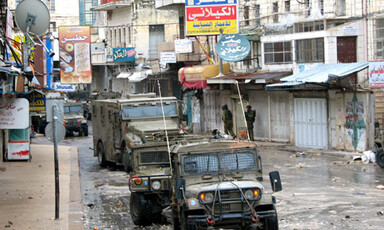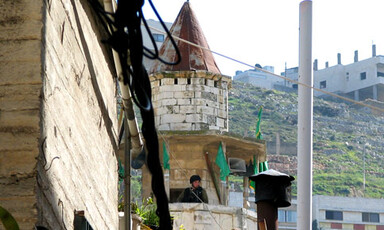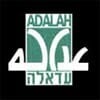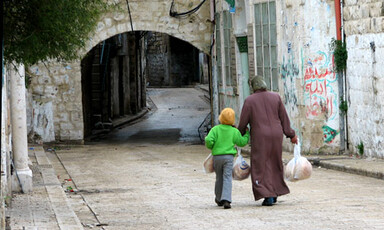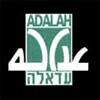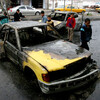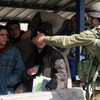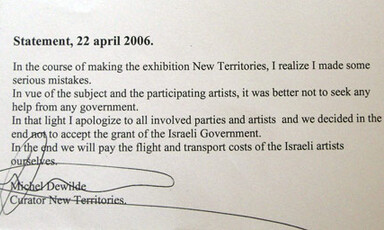
"New Territories" curator not transparent regarding Israeli government sponsorship
21 March 2007
The week before the opening of the ‘New Territories’ exhibition in which she was to participate, artist Alexandra Handal writes, “I went to Brugges to install my work, and there I met the artists who were able to attend. … I was walking with two artists in the city and as we approached a big poster in front of the DeHallen Belfort, where the show was to take place, we noticed that there was an Israeli government seal on it. We were in complete disbelief. What was the Israeli government seal doing on the poster?” Read more about "New Territories" curator not transparent regarding Israeli government sponsorship
